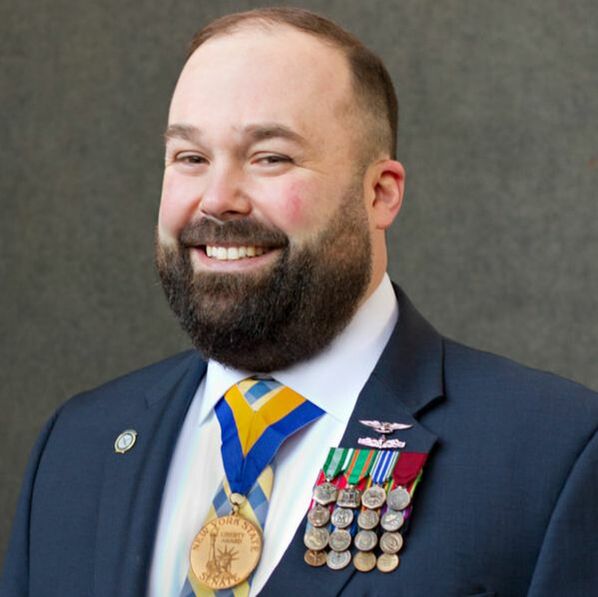By TRAVIS J. TRITTEN
STARS AND STRIPES
January 6, 2017
A bill extending the health benefits to crewmembers aboard Navy aircraft carriers, destroyers, cruisers and other ships along Vietnam’s coast was reintroduced this week in the House. Veteran advocates are already lobbying lawmakers and plan to meet in Washington, D.C. at the end of the month for a new push to get the bill passed.
“I will start crossing congressman and senators off [my list] as I go and we will get back at it,” said Mike Little, legislative director for the Association of the United States Navy.
But the odds might still be against them.
Last year, the same legislation drew massive support in the House with 335 co-sponsors spread almost evenly among Democrats and Republicans. It failed anyway, unable to pass a huge hurdle – cost.
The new Agent Orange benefits require more than $1 billion over a decade and despite the support, lawmakers and veterans have been unable to find a way to pay for it. Current law requires the new expenses to be covered by spending cuts elsewhere in the budget.
“Give me 30 minutes with the [Department of Veterans Affairs] budget and a red pen and I will find the money, but the problem is it has to come out of mandatory spending,” said John Wells, an attorney and the executive director of the Louisiana-based group Military-Veterans Advocacy.
That means pulling money from obligated expenses such as veteran disability payments. During the past two years, Wells and the Navy association proposed using a method called “round downs” that would round the monthly checks to the nearest dollar amount, costing any disabled veteran no more than a maximum of $11.88 per year.
They also looked at an annual surcharge on visas for foreign students in the United States as a way to cover the new benefits for Navy veterans, Wells said.
Both ideas were opposed by two Vermont senators, Independent Bernie Sanders and Democrat Patrick Leahy, Wells said. Without a funding plan, the legislation finally died in December without ever leaving congressional committees or making it to floor votes in the House and Senate.
“That was extremely disappointing,” Wells said, particularly about the rejection of the visa fees. “I mean, where is your priority here?”
Veteran sailors contend dioxin-tainted Agent Orange runoff from the Vietnamese mainland was sucked up through their ships’ water filtration systems and piped to crew, sometimes at concentrated levels.
The herbicide was used widely by U.S. forces in Vietnam to denude the jungle and rob the Viet Cong of a key advantage in its guerrilla war. But Agent Orange was linked later to a variety of serious illnesses.
Veterans who served on land and in rivers are assumed to have had contact with the tainted herbicide but the VA has denied extending the benefits to the so-called “blue water” sailors, reaffirming that decision last year. Wells has sued the agency in federal court and opening oral arguments are expected in April.
Advocates say the sailors have elevated risks for diseases such as cancer, diabetes and Parkinson’s disease similar to ground troops in the war. An examination in 2011 by the Institute of Medicine found sailors could have been exposed to herbicide through potable water systems in warships that collected seawater polluted by land runoff and concentrated the dioxins in Agent Orange through distillation.
The idea of exposure has been an easy sell to many lawmakers and Little said he sees new opportunities in Congress this year, especially with a key committee that oversees veteran issues.
The former chairman of the House Committee on Veterans’ Affairs, Rep. Jeff Miller, R-Fla., had questioned whether the Institute of Medicine findings were sufficient and refused to hold a committee vote on the legislation, dooming it.
Miller left Congress last month and will be replaced as chairman by Rep. Phil Roe, R-Tenn., a veteran and medical doctor who Little believes will be more receptive to expanding the Agent Orange benefits.
The highest ranking Democrat on the committee had not yet been named but Rep. Tim Walz of Minnesota is a frontrunner. Walz is a sponsor of the new Agent Orange bill introduced Thursday.
On top of the new committee leadership, Little said about 90 percent of House members already support the benefits for veteran sailors.
Also about half of senators appeared ready to support them as well. A Senate version of the bill introduced by Sen. Kirsten Gillibrand, D-N.Y., attracted 46 cosponsors.
Little, who lobbied hundreds or thousands of hours for the legislation during the last two years, said the Navy association is already drafting letters for every member of the House urging support and will begin following up in-person meetings.
Little and Wells hope all their work on the benefits will pay off for veterans this year.


 RSS Feed
RSS Feed
